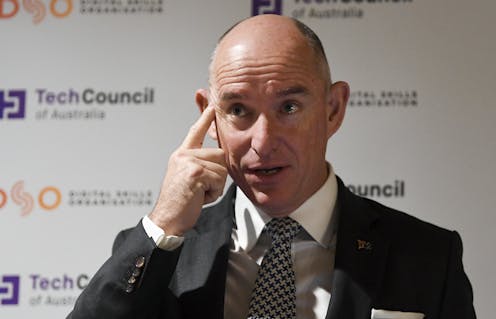Ministerial interference is an attack on academic freedom and Australia's literary culture
- Written by Julieanne Lamond, Senior Lecturer in English, Australian National University

On Christmas Eve, many researchers across the country received the news that their Australian Research Council (ARC) funding applications had failed. For most of them, this was disappointing but not surprising: the success rate for the scheme is 19%.
Six research teams were informed they had been recommended for funding within this competitive pool, but the acting Education Minister Stuart Robert had vetoed their applications[1]. The rationale provided was that the vetoed projects “do not demonstrate value for taxpayers’ money nor contribute to the national interest”.
The focus of Robert’s veto is particularly worrying: all the rejected projects are in the humanities, and four of the six are in literary studies. The applications that were vetoed offer a snapshot of how literature has long been part of everyday life, examining topics such as Elizabethan theatre, popular narratives, science fiction and fantasy.
This shows a wilful ignorance of the value that literature and its study provide to Australia’s society, culture and economy. It is an affront to the principle of independence that should underpin research funding in a democracy. It disregards the expertise and time of the thousands of scholars involved in the process of writing and assessing these applications.
The Australian University Heads of English, the peak body for the study and research of literature in Australia, has released a statement[2] calling on the minister to “reinstate the defunded projects and commit to legislating the complete independence of the ARC from government interference and censorship.”
Thus far, the more than 800 signatories to the statement include many of Australia’s most brilliant writers: Alexis Wright, J.M. Coetzee, Randa Abdel-Fattah, Gail Jones, Delia Falconer, Natalie Harkin, Peter Goldsworthy, Amanda Lohrey, Evelyn Araluen, Michelle de Kretser, Maria Tumarkin, and Roanna Gonsalves.
When then education minister Simon Birmingham rejected 11 ARC applications four years ago, they were all in the humanities, including four from literary studies. The statement notes:
The actions of the government reveal that it is committed to defunding Australia’s literary culture by overriding academic autonomy and determining what kinds of knowledge can and cannot be pursued.
Read more: Simon Birmingham's intervention in research funding is not unprecedented, but dangerous[3]
Time and money
ARC applications are onerous. Each proposal goes through a process of drafting, internal university review, informal reading and advice, audit and redrafting. This process relies on collegial good will. Because of the timing of the deadlines, it is often undertaken over the summer.
Each application is then assessed by readers who are respected scholars in the field. This round, 9,402 assessors’ reports were submitted. The applications are then ranked by an overseeing assessor, and appraised by a selection committee and an eligibility committee.
The decisions to fund projects in such a competitive field, where research funding is already constrained, are the end result of a process that is extremely time-intensive and relies on countless hours of labour. This process is already a significant drain on the time and resources of universities across the country.
Minister Robert’s rejection of the expert recommendations is a shocking waste of time and money.
ARC funding can make the difference between researchers keeping or losing their jobs. In some institutions, it is a hard barrier to promotion and it has a compounding effect on gender disparity at professorial level in many disciplines.
Fewer than half of the chief investigators on research projects in the current round of applications were women. The success or failure of funding applications also influences how far institutions are willing to invest in particular areas of study.
The value of literature
Such ministerial decisions imply that the discipline of literary studies is antithetical to the national interest. On behalf of the nation’s readers, I would like to disagree.
Literature in Australia is put to many and diverse uses: it is part of our leisure, our social connections, our inner lives. It connects us to the past and informs our thinking about the future. It shapes our children’s and young adults’ sense of themselves and how they fit into the world at large.
Students study literature at school and university and find themselves challenged by and reflected in the works they read. Politicians quote poetry in their speeches in parliament. Book clubs are a vital source of community and connection for people of all walks of life.
Australian books are translated into many languages: they are read and studied all over the world. The publishing industry contributes more than a billion dollars a year to the national economy[4].
For these and many other reasons, I find it difficult to believe the study of literature does not provide “value for taxpayers’ money nor contribute to the national interest”.
What the writers who have signed the statement contribute “to the national interest” is inestimable. Unlike Robert, they recognise the role of literary research in supporting the literary cultures that enrich the lives of all Australians.
References
- ^ the acting Education Minister Stuart Robert had vetoed their applications (www.theguardian.com)
- ^ a statement (docs.google.com)
- ^ Simon Birmingham's intervention in research funding is not unprecedented, but dangerous (theconversation.com)
- ^ more than a billion dollars a year to the national economy (www.ibisworld.com)

















